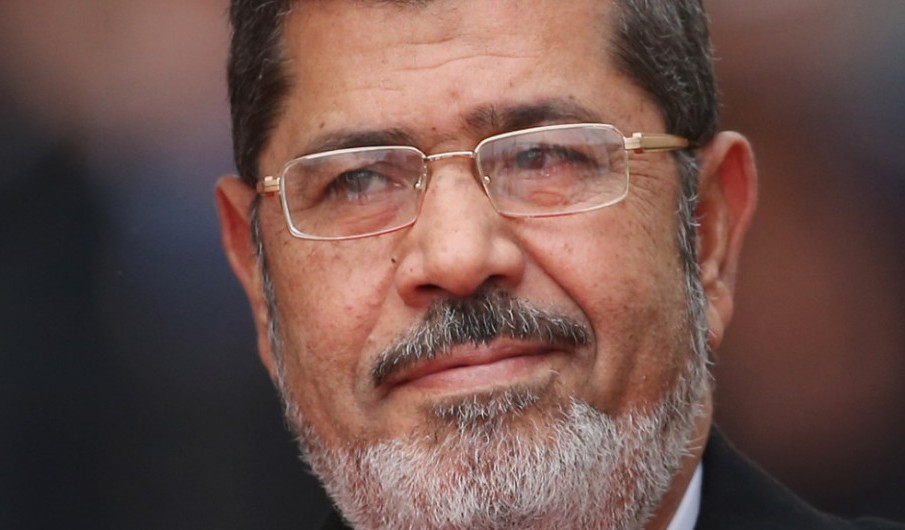As in many parts of the world, the circumstances of the death of the ousted Egyptian President, Mohammad Morsi evoked feelings of sympathy for him among Nigerian Muslims as much as it triggered their anger against the Egyptian President, Abdul-Fattah El-Sisi who they believe is responsible for Morsi’s death.
Mohammad Morsi was a key figure in the Muslim Brotherhood, a transnational political organization supposedly pushing for Islamic political reforms in Muslim countries. It was created in Egypt by Hassan Al-Bannah in 1928, and it has ever since then spread across the Middle East and beyond where it has operated as a political opposition under various party names.
Though it has always been at loggerheads with governments in various countries where its members have always been rightly or wrongly accused of subversive activities, its members have always been part of governments in many countries, as elected representatives and/or appointed officials.
Now, away from the intricacies of the power struggle between the Muslim Brotherhood and various governments in the Middle East and elsewhere, and though there is no such thing as the Muslim Brotherhood as an organization in Nigeria, there are some Muslim Brotherhood-inspired groups and many Muslim Brotherhood-inspired individuals in the country.
The emergence of this trend began with the emergence of the phenomenon of religion renaissance among Nigerian Muslims in the 70s. Many Muslim university students then eager for deeper socio-political understanding of Islamic religion but who were apparently too eager to subject themselves to learning process under the tutelage of competent Islamic scholars turned to some foreign journals, pamphlets and the English version of some books and other works written by Hassan Al-Bannah, Sayed Qutb, Abul A’la Maududi, AbdulQadir Audah and their likes, from which they consciously or unconsciously imbibed the Brotherhood philosophy.
Meanwhile, disguised under the Muslim Brotherhood clothing, Ibrahim Zakzaky was also busy luring many of them and other unsuspecting Muslims into Shiism until 1996, which led to the breakaway of many of his followers who afterwards created the Jama’atut Tajdidil Islamy (JTI) as basically the Nigerian version of the Muslim Brotherhood.
Anyway, among the Muslim Brotherhood-inspired individuals in Nigeria, there are activists who are particularly active in public operating as individuals or under various Islamic organizations. There are also reformists who are largely a middle-class Western-educated elite, and who are supposedly quietly pushing for Islamic socio-political reforms in their various capacities in the civil/public service, private sector and other fields of endeavour.
Though they are actually largely ‘yan boko, they are always referred to and addressed as Malams due to their apparent religiosity and indeed their apparent enthusiasm to push for Islamic reforms in public affairs. In some northern Nigerian states in particular where public figures with such qualities attract public trust, such “Malams” get appointed to important positions in government. As a matter of fact, many of them have won elections, literally on a silver platter, thereby becoming state house of assembly members, members of the Federal House of Representative, senators and even governors.
Interestingly, despite their disappointing failure to live up to expectations in general, Nigerian Muslim Brotherhood-inspired politicians are far better than their Muslim Brotherhood role models in the Arab world and other parts of the world. This may sound hard to believe especially to most, if not all, Nigerian admirers of the Muslim Brotherhood politicians elsewhere.
As an activist or aspirant to an elective position, a typical Muslim Brotherhood politician would always insist on the organization’s slogan of “Al-Islam Huwal- Hal” i.e. Islam is the only solution. He would sound uncompromisingly Islamic in his rhetoric and agenda, citing religious texts to prove his purported commitment to pushing for, or bringing about Islamic reforms, depending on the position he is aspiring to.
However, once in power, he would begin to cite constitutional and other underlying internal and external constraints as an excuse for his inability to push for or implement his agenda; an excuse he had denied his predecessor when he was campaigning to wrestle power from him. He would serve out his term with hardly any tangible delivery on any of his campaign promises as they relate to Islamic reforms thereby ending up not different from any typical secular politician.
Yet the gullible among the general public who are always the majority, and also many otherwise critical-minded individuals would hardly see beyond his populist propaganda and empty rhetoric against, say, Western hegemony or Israeli occupation of Palestine, for which they would keep admiring him anyway. For instance, even as the most powerful Muslim Brotherhood politician ever, Turkish President Recep Tayyip Erdoğan has never demonstrated any commitment to going beyond this level.
Even after seventeen years of his domination of Turkish politics, the country remains literally not any different from any Western secular democracy. Also, notwithstanding his occasional purported diplomatic face-off with Israel over Palestine, Turkey remains the closest ally to Israeli among Muslim countries; they share strategic economic and military interests.
Likewise, in his short stay in power, Mohammad Morsi of Egypt had already deviated from his Muslim Brotherhood campaign promises.
Whereas, since 1999, Nigerian Islamists including Brotherhood-inspired politicians have pushed for and successfully brought about many Islamic reforms backed by substantive laws in various states in northern Nigeria. Granted many did it under public pressure, which explains the obvious lack of political will to implement some of them properly, yet it remains an achievement anyway because the bases have already been provided for those with the political will to implement them in due course.




